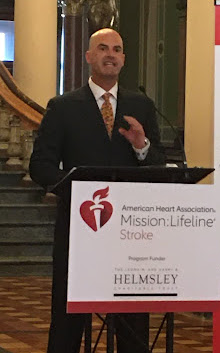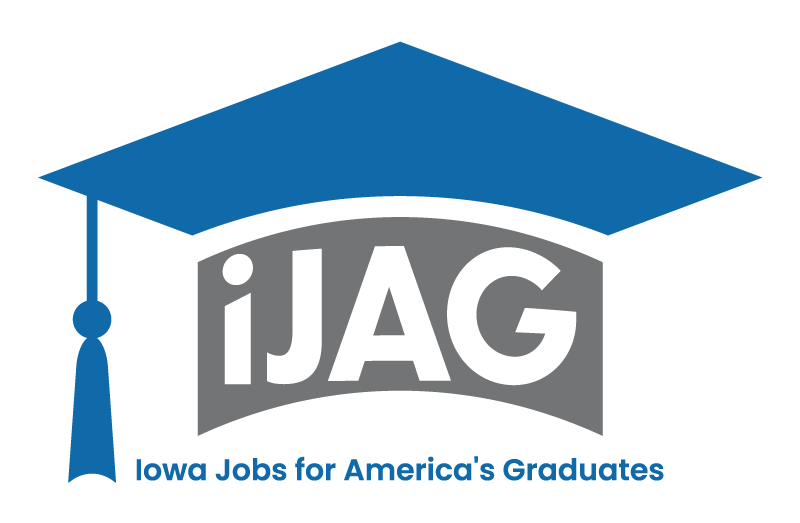American Heart Association, Helmsley Charitable Trust announce $9.3M in grants to enhance stroke care in Iowa

BPC Staff Jun 23, 2022 | 9:23 pm
3 min read time
783 wordsAll Latest News, Arts and Culture, Health and WellnessThe American Heart Association/American Stroke Association this morning announced a statewide commitment to Iowa of $7.5 million for its Mission: Lifeline Stroke initiative to strengthen stroke care across the state. The foundation of this new initiative is a $6.3 million grant from the Leona M. and Harry B. Helmsley Charitable Trust, the organizations’ representatives said at a press conference at the Iowa Capitol.
Additionally, the Helmsley Charitable Trust is granting $3 million to the American Heart Association to launch HeartCorps in Iowa. The public health outreach program for stroke awareness and education will work with rural communities in Iowa, along with several counties in Minnesota and Wyoming.
Stroke is a leading cause of death in Iowa, accounting for more than 1,400 deaths in 2020. Many more Iowans are living with stroke-related disabilities.
The Mission: Lifeline Stroke initiative will focus on connecting all components of acute stroke care into an integrated system that reinforces the use of evidence-based guidelines to quickly and effectively treat stroke patients. Its objective is to bring together hospitals, emergency medical services and first responders, rehabilitation facilities, communications and regulatory agencies, state and local government, and payers to forge a proactive system of stroke care that saves and improves lives.
The stroke program in Iowa builds on prior success with this approach in heart attack prevention and treatment. In 2015, the Helmsley Charitable Trust provided a $4.6 million grant to support the launch of Mission: Lifeline STEMI in Iowa to reduce treatment times for acute cardiac care. With today’s announcement, the Helmsley Charitable Trust will have invested $64 million to move the needle to improve heart and brain health in rural states.
“Strokes, like heart attacks, are time-sensitive emergencies — time loss is brain loss,” said Kevin Harker, executive vice president for the Midwest Region of the American Heart Association/American Stroke Association.
“The most common treatment is a clot-busting drug called Alteplase, more commonly known as TPA,” Harker said. “But this treatment can only be used when the stroke patient is diagnosed and treated within the first 4 1/2 hours of the first onset of symptoms. With the clock ticking, it’s essential that all parts of the health care system are linked together to effectively make this seamless care.”
Dr. Enrique Leira, who leads the Comprehensive Stroke Center at University of Iowa Hospitals and Clinics, treats stroke patients on a daily basis and co-chairs the Iowa Stroke Task Force.
“This ongoing commitment from the Helmsley Charitable Trust will directly touch the lives of all Iowans, and for this I am very grateful,” Leira said. “The Mission: Lifeline Stroke initiative will help us better coordinate stroke care, from the time of onset to treatment. … This investment is going to be particularly impactful in decreasing the unacceptable disparity in stroke care we are currently experiencing in rural states like Iowa.”
Kelly Garcia, director of the Iowa Department of Health and Human Services, said the state has made progress in increasing the numbers of patients who receive TPA treatment within the first hour after arriving at the hospital, from 60.4% in 2018 to 76.5% in 2001.
“I’m excited to see this initiative use data to drive new approaches and improvements and build on the great work of our Iowa Stroke Task Force,” she said. “This work will inevitably help all stroke patients in Iowa have the best chance to survive and return to healthy, independent lives, which is also a core mission of our work.”
With the launch of HeartCorps, the American Heart Association plans to build a sustainable pipeline of public health workers to help reduce cardiovascular risks among rural residents, beginning this fall. The Public Health AmeriCorps Program is a joint partnership between AmeriCorps and the Centers for Disease Control and Prevention.
 Iowa is among 28 states that will participate in HeartCorps. AmeriCorps has provided the American Heart Association with a grant of $8.6 million, which funds 63% of the project. The remaining $5.1 million, or 37%, of the project was funded by the Helmsley Charitable Trust, the American Heart Association, and other funders. With funding from the Helmsley Charitable Trust, the American Heart Association will place HeartCorps members in rural counties across Iowa.
Iowa is among 28 states that will participate in HeartCorps. AmeriCorps has provided the American Heart Association with a grant of $8.6 million, which funds 63% of the project. The remaining $5.1 million, or 37%, of the project was funded by the Helmsley Charitable Trust, the American Heart Association, and other funders. With funding from the Helmsley Charitable Trust, the American Heart Association will place HeartCorps members in rural counties across Iowa.“HeartCorps is an excellent opportunity to bolster the public health workforce in communities across the country,” said Walter Panzirer, a trustee of the Helmsley Charitable Trust and a grandson of Leona Helmsley. “Developing local expertise and resources to improve health outcomes will provide long-term benefits to these communities.”
The Helmsley Charitable Trust began its active grantmaking in 2008 after the death of Leona Helmsley, who with her husband, Harry Helmsley, built a real estate empire in New York City and donated millions to health-related causes during their lifetimes.









